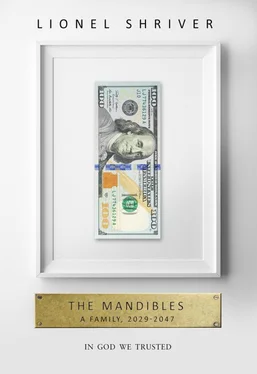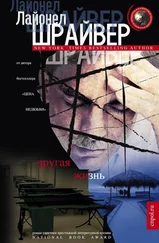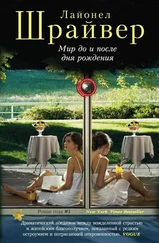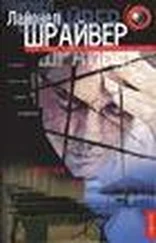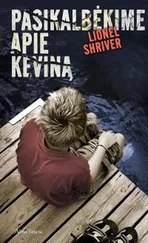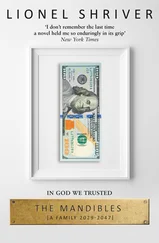“So do you know what it was like here,” Willing asked his uncle, “when the USN declared independence? After the border last week, I don’t trust anything that was on the news in ’42. The massacres, the anarchy. The paramilitary confrontations between patriots and secessionists. Was any of that real?”
Jarred loved to pontificate. He’d only vanished from Citadel six months ago, but that was ample time for Jarred Mandible to become an expert on a new country—if his authoritative air was undermined somewhat by the bathrobe and the plastic stool.
“That was all CGI,” he declared. “There were no paramilitary battles—because there weren’t any ‘patriots.’ Everybody had fucking had it with DC, and anyone feeling swoony about America the Beautiful was welcome to leave. From what I’ve been told, ’42 was the most graceful revolution in history. Municipal governments were already in place, and they stayed in place. Ditto the state government—which simply became the national government, bingo, overnight. So people woke up. Sun rose. They went to work. Nothing changed. After all, ever think about what the federal government does? Takes your money and gives it to somebody old. That’s about it. Oh, and then the feds do expend an awful lot of energy interfering with anything you want to do. Really miss that.”
“There’s the Census Bureau,” Willing said. “I don’t know how much good they do, but it’s pretty benign.”
“The American Battle Monuments Commission!” Nollie posited. “Harmless.”
“The Coast Guard ,” Willing remembered victoriously. “Actively good.”
Jarred laughed. “Okay, I’ll give you the Coast Guard.”
“Remember back when Republicans had the numbers to let Washington run out of funding?” Nollie said. “The federal government pulled down its shutters, and nobody noticed.”
“Only one thing made folks cross,” Jarred remembered. “The closing of national parks. And now the feds have sold off Yellowstone. So much for that.”
“Hey, what’s happened to the Las Vegas Strip?” Willing asked, hoping to pull his uncle out of an all-too-familiar sourness. “I’ve seen pictures of that neon boulevard all my life. Now it’s dark .”
“Well, early in the Renunciation,” Jarred said, “Vegas made a killing. Foreign tourists swamped the casinos. With the exchange rate in their favor, drinks, hotel rooms, big shows, and buffets were practically free. Trouble was, at the tables, all you could win was dollars. Alvarado wasn’t letting more than a hundred bucks out of the country, so you couldn’t take the cash back home. And even if you spent it, in situ? Once inflation took off in earnest, in no time a big win wasn’t worth any more in real terms than the stake you’d started with. Didn’t make for a satisfying experience. Ironically, with all its early associations with the Mafia, Vegas stayed safer than most American cities in the thirties. The flood of foreign money seeped through the cracks and damped down desperation. So what really destroyed the Strip wasn’t mayhem. It was order. The sort of order that fired that lump of tin into your neck, you poor bastard.”
“The windfall tax of ’37,” Nollie recalled. “It applied not only to property sales, but to gambling earnings.”
“ Ninety percent ,” Jarred said. “So a two-to-one win nets a tenth of the bet. The risk-to-benefit ratio went to hell. All very well, long as Uncle Sam was relying on your upstanding character to report that bucket of nuevos from the slots. But then they brought in chipping, and taxing at source at the casinos, even for foreigners. For the pros, it was a death knell. No one could make a living, even if they were biggin’ sharp. Then the kibosh: they eliminated the cash nuevo. The feeling of physical money—being able to thumb a stack of hundreds, or heft five pounds of quarters from a one-armed bandit—it’s always been crucial to the whole gaming gestalt. When you only got credit in abstraction, most of which was immediately extracted… Well. It was the end of fun. If you want a single explanation for secession, that was it. Locals say the public outrage was so palpable that the air turned red.” Jarred sounded wistful. He’d missed the party.
“Their motto, as I recall,” Nollie said, “was No Taxation . That’s all. They didn’t give a shit about representation. Feisty buggers. I was impressed at the time. Like Hungary rising up against the Soviets. Not an auspicious analogy, either.”
“By and large, I think Nevadans were relieved not to fight a civil war,” Jarred said. “But they would have put up a fight. Nobody but nobody in this state handed in their arms after the reinterpretation of the Second Amendment.”
“The Strip could have revived after independence,” Willing said.
“Not with the embargo,” Jarred said. “The big casinos could never survive on locals, who are mostly low-stakes players. They need tourists. That’s been the biggest blow to this economy: no more tourists. Only a steady stream of strapped wetbacks like us. Washington won’t grant Nevada-bound planes the right to enter American air space. I hope you realize the scale of what you’ve done. There’s no air travel in or out. And while it may be dead easy to get into the Free State, I’m pretty sure they do arrest you if you go back. At the least, they do you for back taxes—with interest and penalties, compounded; so in either a real prison or a de facto debtors’ prison, it’s a life sentence. Especially if you’re chipped, Willing—this Brigadoon is for keeps.”
“So are there any casinos left?” For Willing, it was a matter of atmosphere. He wasn’t yearning to play craps. But he didn’t want a city for which he’d permanently sacrificed his house, most of his extended family, and a far-better-than-serviceable girlfriend to be just like everywhere else.
“The old downtown dumps like the El Cortez are limping along. Hate to admit it, but I’ve been hitting their tables myself. I don’t know how else I’ll amass any capital. You remember those long cold nights at Citadel: I’m ace at blackjack.”
“Have you won big, then?” Willing said.
“Haven’t lost much,” Jarred grunted. “An achievement.”
Nollie crossed her legs and propped her feet on the foul matter box.
“DC has clearly expected,” Jarred said, “that by choking off trade, collapsing tourism, blocking communication and transport links, and throwing a state notoriously short on water totally on its own devices, they’ll bring the USN to its knees. So the parallel is less Hungary than the Siege of Leningrad. Thirsty, poor, isolated, and frantic for fresh peaches, Nevadans will beg to be let back into the union—or so goes the theory. Meantime, the Army doesn’t have to fire a shot. No one in Washington had the appetite for American troops mowing down other Americans on maXfleX. As a strategy, it’s canny, frugal, and politically cunning. The Chelsea Clinton administration quietly assumed that the USN would crumple into a whimpering, remorseful heap within months if not weeks. Except it’s been five years. Nobody’s crying.”
Jarred exuded an infectious local pride that he may have caught from his neighbors. Yet there was a conspicuous disconnect between Jarred’s gung-ho and this dismal, Spartan dive. Willing hadn’t noticed any transport parked in Jarred’s drive. The bare bulb glared, and Willing was preparing for another night in the Myourea. The corn chips and kumquats were finished, and he wasn’t counting on more to eat.
“Is this so-called country working?” Willing said tentatively, trying to be tactful. “Or are people here just bigging stubborn?”
“This state is a riveting social experiment, and maybe the vote’s still out,” Jarred said with gusto. “All Western social democracies have traveled the same arc. They start out decent and quiet and kind of careless, but eventually they get puffed up with their own virtue. Infatuated by fairness . Of course, in a perfectly fair world we’d all have a big, malicious house and mounds of food. Unlimited access to state-of-the-art medicine, free childcare, biggin’ brutal education, and plumped pillows for the long-lived —”
Читать дальше
